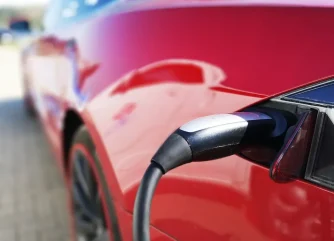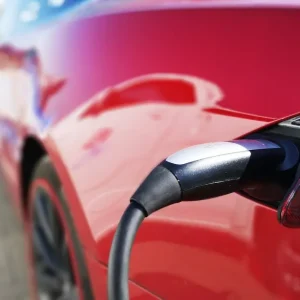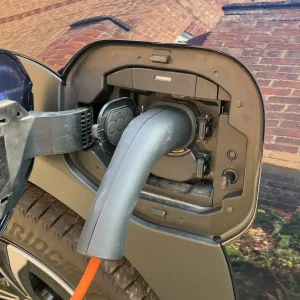
Fleets have expressed positive views about EV adoption in 2025, as questions continue about the UK Government’s ZEV mandate.
Research for the BVRLA’s Industry Outlook report found that 51% of fleets expected to increase their volume of electric cars next year.
In addition, 66% said they planned to install workplace charging infrastructure, and 66% also said they favoured a 2030 deadline, or sooner, for the phasing out of the sale of new ICE cars.
Introducing the report at the BVRLA’s Industry Outlook Conference, the rental and leasing industry body’s director of corporate affairs Toby Poston said: “It’s just fleet sentiment – not consumer – but there are some positive signs there in terms of adoption next year, in terms of their approach to the mandate, in terms of their intentions to buy electric cars at least, and in terms of their plans to install workplace charging.
“I think it’s a good sign at least one half of the demand equation is coming to the ZEV mandate party next year.”
The ZEV mandate requires manufacturers to sell an increasing proportion of zero-emission cars each year, or face fines.
The government is planning a consultation soon on potential revisions, following a recent meeting with industry representatives, including the BVRLA.
Poston told the conference that at the meeting, car manufacturers had not called for changes to the mandate’s headline targets and timings, having already implemented their production plans.
However, he said: “There was also consensus that there does need to be some tweaking in terms of the flexibilities – how those targets are applied, and how those timings are applied. And there was also consensus that something absolutely needs to change in terms of driving consumer support.
“I think everyone again acknowledged that the mandate … was designed at a time when people thought that demand was going to be at a certain level, but demand hasn’t really hit those levels.
“But there was commitment I think from everybody that we need to work together to change that, and that means addressing some of these flexibilities that are involved with the mandate, and working on that consumer demand side of things.”
Poston also cautioned against a view that the overall policy might be at risk of collapse.
He said: “I know there’s a huge amount of stuff across the media, and if you look at CEOs of car companies resigning, plants in the UK being shut down, really worrying levels of demand for EVs particularly on the consumer side, it’s very easy to get the impression that the government’s plans are in tatters.
“I assure you that they are not. I also need to assure you that the BVRLA are absolutely at the top table when it comes to talking about these issues.”
During a panel discussion at the conference, Ryan Johnson, managing director and senior vice president for Enterprise UK and Ireland, argued that the government would need to accept that major investment would be needed to achieve the ZEV mandate targets.
He said: “I think the simple reality for government is where there have been heavy incentives, there has been adoption, there has been acceleration. If you want to accelerate at the pace the ZEV mandate would require, that’s going to require massive investment and massive incentive to drive that.
“If the government wants to put in the money to do that then I think we can stay on this pace, if they don’t then we’ve got to face some of the fiscal reality of what that means.”
Away from the calls for government action, another speaker on the panel, Octopus Electric Vehicles CEO Fiona Howarth, argued that manufacturers themselves were not helping the situation, by propagating doubts over EV demand.
She said: “I don’t think there’s any other industry I know, where you’ve got manufacturers that are saying ‘Yeah we want to sell this product, but by the way there’s no demand for it’.
“The reality is they are undermining the conversation by saying there’s no demand, when there is demand, its just people aren’t buying their products at the minute, or they don’t even have products that have the same demand as some of the other ones are seeing. So I think we should be cautious of this narrative.”





